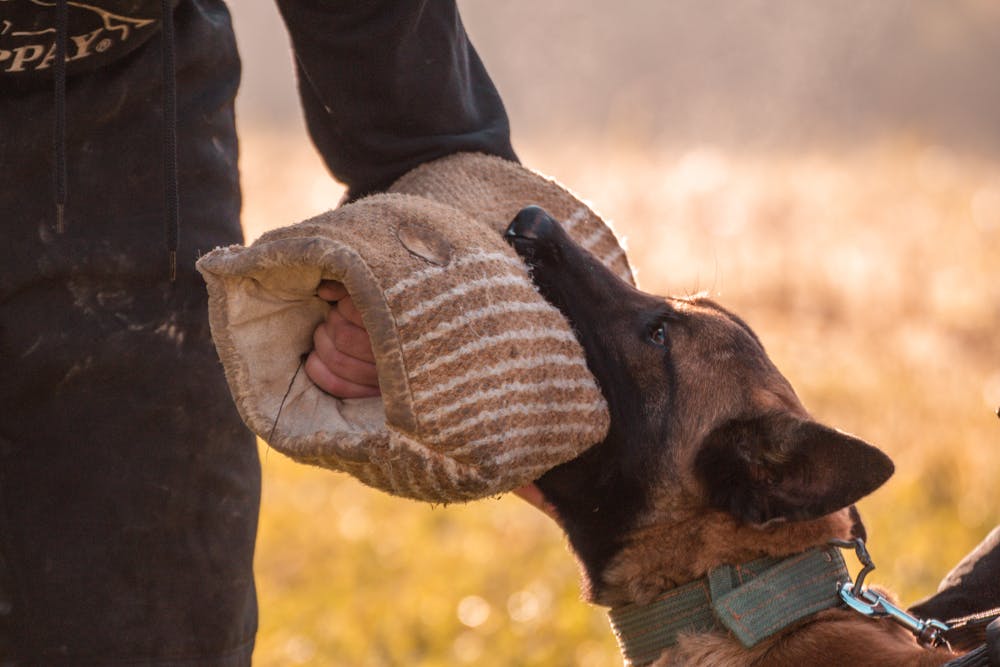Reviews
5 Essential Steps to Take After Experiencing a Dog Bite

They’re supposed to be “man’s best friend.” But what will happen if something happens inside your neighbor’s house, their dog runs amok, and you suddenly become the target of an unfriendly bite? Or that doggie is really quite unfriendly, got loose, and then attacks your leg while you’re enjoying a good walk home.
These are just some scenarios that reinforce your need for a good list of insights to tackle your must-dos when you experience a dog bite.
1. Prioritize Immediate Medical Care
If you’ve just experienced a dog bite, remember you’re not alone—over 4.5 million people in the U.S. experience dog bites annually, with nearly 1 in 5 requiring medical attention. You may need to think of yourself first right after a dog bite. Just clean the wound thoroughly with plain soap and water for about five minutes to reduce and avoid any risk of an infection.
So, apply an antibiotic ointment right after and cover your wound with a clean gauze or bandage to avoid airborne infectants. Seek medical attention right away if the bite is deep, bleeding excessively, or shows signs of infection like redness, swelling, or pus.
Legal Implications
Generally, prompt medical treatment creates a documented record of your injuries, which can be quite crucial later on. Your medical records will testify to the extent of your injuries and the treatments you may need, supporting your claim for compensation and support.
2. Report the Incident to Authorities
It’s more to your advantage if you can immediately contact your local animal control or public health department to report the bite and any injury. Your report will help prompt the authorities to make sure that the dog is properly quarantined and monitored for rabies, protecting both you and your neighborhood.
Legal Implications
Filing your report can provide probing authorities with more official documentation or a record of the incident, which can be especially vital in legal proceedings or claims processes. Most often, this kickstarts an investigation into the dog’s history, which may reveal previous aggressive behavior, helping you build your compensation claim or case.
3. Consult a Dog Bite Lawyer
When you suffered significant injuries or incurred medical expenses, you may already need the help of Silverthorne Attorneys dog bite lawyer. With an attorney guiding you, you get a better understanding of your rights, helping you tread your legal and claims journey with more capable hands and resources.
Legal Implications
Hiring and working with an experienced attorney can competently assist you as you walk through the complexities of dog bite ordinances, which may vary by state or jurisdiction. They can also help determine the dog owner’s liability, gather necessary evidence as may be available, negotiate with insurance companies if they need to, and make sure that you receive fair compensation for your physical and emotional sufferings.
4. Monitor for Signs of Infection
There may be instances when, despite prompt care, dog bite areas may become infected. That’s why you need to keenly watch for symptoms in your injury, like increasing pain, redness, swelling, warmth, or pus. If any of these symptoms start to show, call for medical help right away.
Legal Implications
Monitoring and treating your infections as they appear can prevent complications that might show the other party you’re partly to blame or that there was also negligence on your part that somehow caused you to suffer. Failing to address infections immediately could potentially weaken your legal claim by suggesting you didn’t take appropriate care to mitigate damages.
5. Follow Up on Rabies Vaccination
You may have to make sure that the dog’s rabies vaccination status is verified. You can ask the owner for their records or certificate. If the dog that bit you is unvaccinated or its status is unknown, you may need post-exposure prophylaxis to prevent rabies, a potentially fatal disease that has claimed thousands of lives all over the world.
Legal Implications
In most proactive states today, canine owners are already legally required to vaccinate their pets against rabies and other infectious diseases. That’s why, if the one that bit you was found to be unvaccinated, this could be considered the owner’s negligence, which could, in turn, beef up your legal claim for damages and medical support.
In sum, dog bites aren’t just painful experiences—they’re life-changing, especially if you used to consider dogs to be quite friendly. But if you suffered an attack and were bitten, your next course of action, therefore, can matter a lot. From medical care to legal action, each step can competently safeguard your health, rights, and peace of mind.
So, don’t leave your future to chance—act smart, act fast, and when in doubt, get expert help. Your recovery—and justice—begins with informed, more decisive action.

-

 World1 week ago
World1 week agoEthiopian volcano erupts for first time in thousands of years
-

 Health2 days ago
Health2 days ago8 kittens die of H5N1 bird flu in the Netherlands
-

 Legal7 days ago
Legal7 days agoUtah Amber Alert: Jessika Francisco abducted by sex offender in Ogden
-

 US News6 days ago
US News6 days agoExplosion destroys home in Oakland, Maine; at least 1 injured
-

 Health7 days ago
Health7 days agoMexico’s September human bird flu case confirmed as H5N2
-

 Legal3 days ago
Legal3 days ago15 people shot, 4 killed, at birthday party in Stockton, California
-

 World7 days ago
World7 days agoWoman killed, man seriously injured in shark attack on Australia’s NSW coast
-

 Health6 days ago
Health6 days agoMarburg outbreak in Ethiopia rises to 12 cases and 8 deaths




